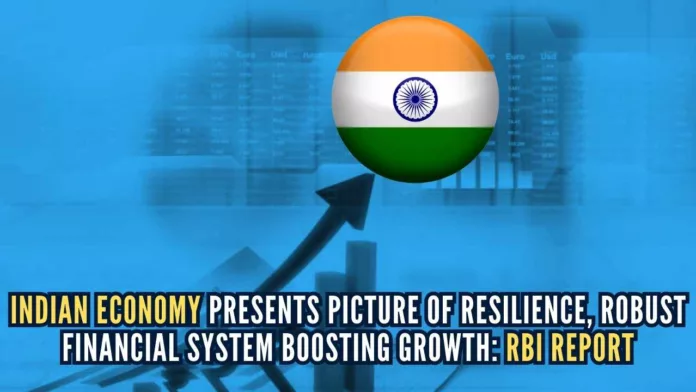
RBI’s financial stability report says India’s economic prospects brighten; core inflation, global volatility may pose risks
The Indian economy presents a picture of resilience, supported by strong macroeconomic fundamentals, the Reserve Bank of India‘s (RBI) financial stability report has said.
The report, which is a half-yearly report card of financial institutions’ health, while presenting an overview of the financial sector, noted: “Sustained growth momentum, moderating inflation and anchoring of inflation expectations, a narrowing current account deficit (CAD) and rising foreign exchange reserves, ongoing fiscal consolidation and a robust financial system are setting the economy on a path of sustained growth.”
“Healthy balance sheets of banks and corporates are engendering a new credit and investment cycle. Strong revenue growth, higher profits, and lower leverage are helping corporates to improve their bottom lines,” it added.
Banks and non-bank financial intermediaries are posting strong earnings and robust credit growth with strengthening buffers, the report said. These improvements are brightening the prospects of the Indian economy, fortified by the rising pace, the RBI document added.
However, it cautioned at the same time, that the stability of the global financial system is tested by high inflation, tight financial conditions, and banking system fragilities.
Simultaneously, geopolitical tensions and economic fragmentation are threatening macroeconomic stability. Bouts of volatility surge through financial markets amidst rapid shifts in investor sentiments.
Emerging market economies (EMEs) could face significant spillover risks and asymmetric effects of macro-financial instability, it pointed out.
[With Inputs from IANS]
PGurus is now on Telegram. Click here to join our channel and stay updated with all the latest news and views
For all the latest updates, download PGurus App.










